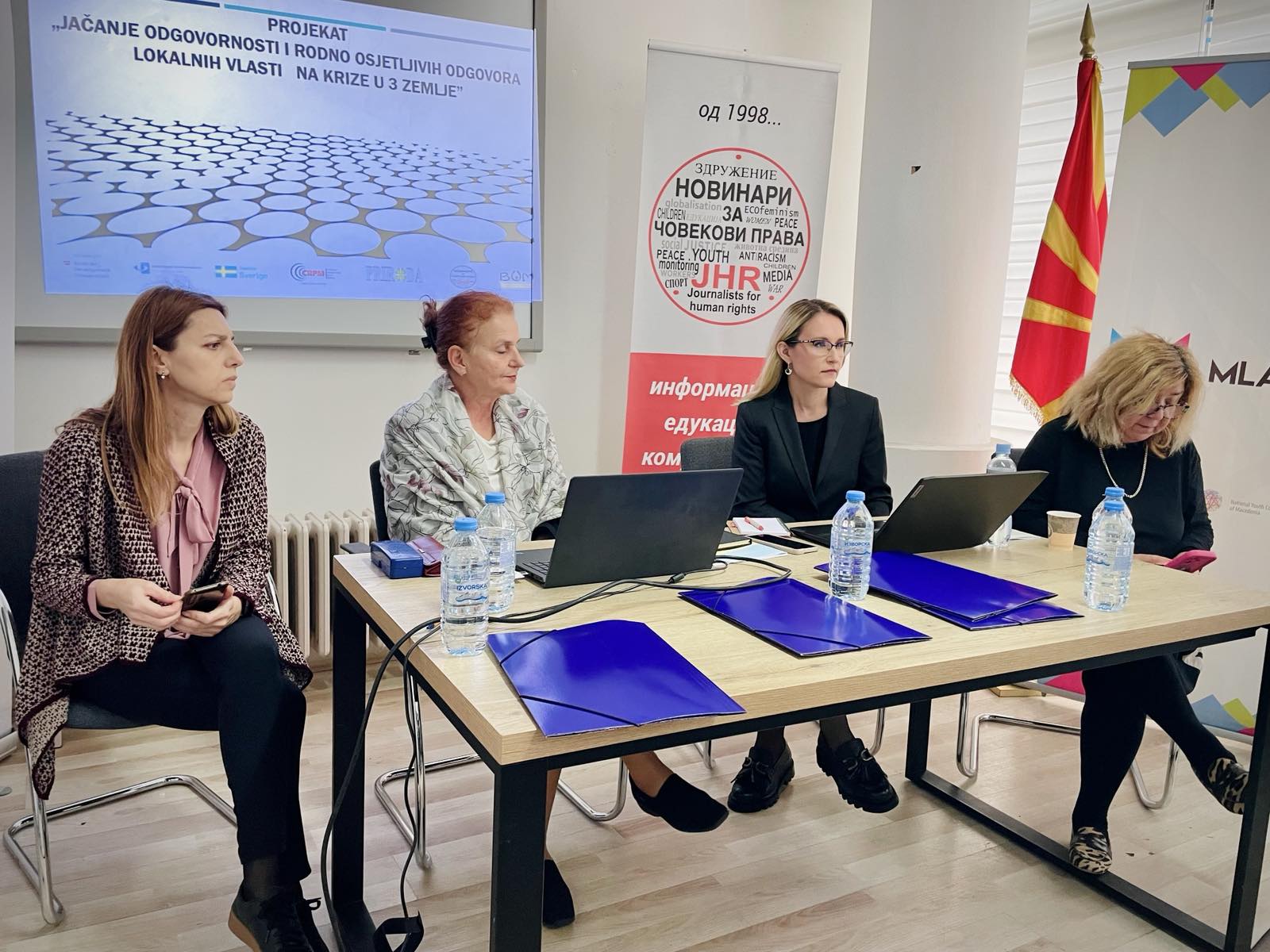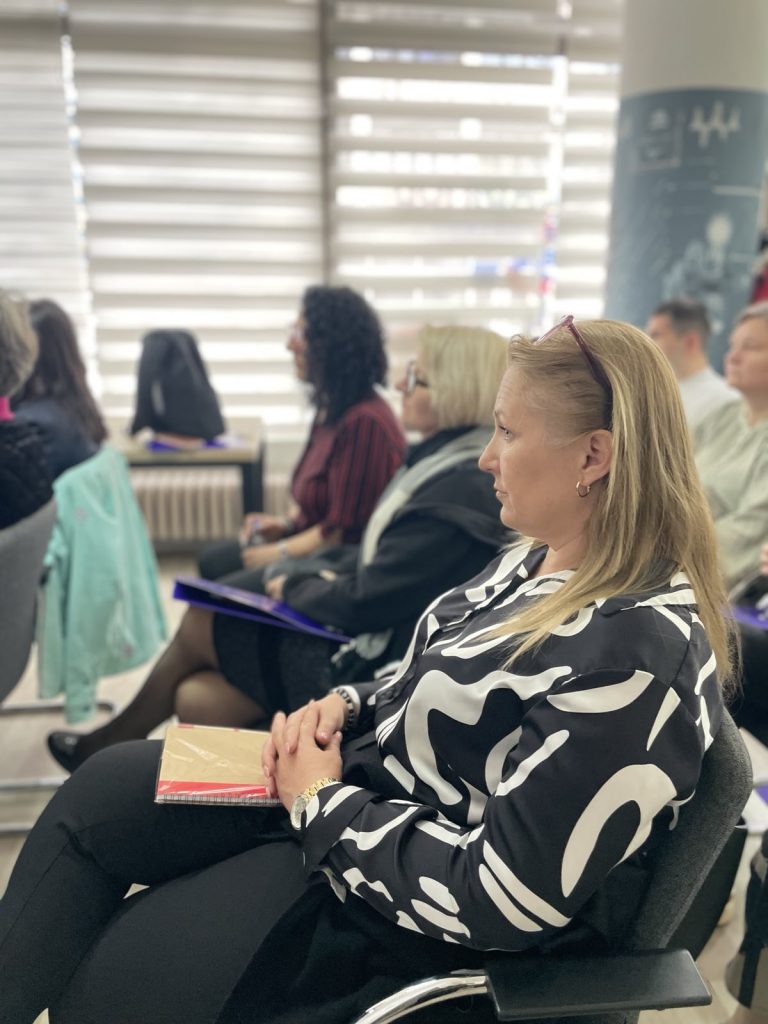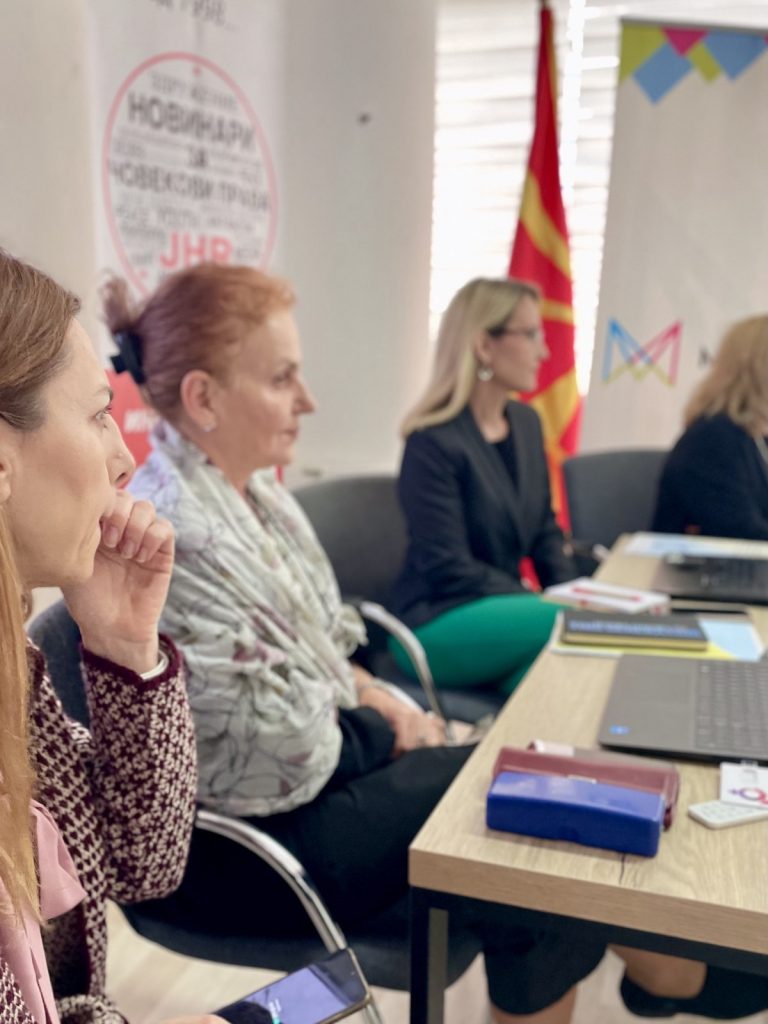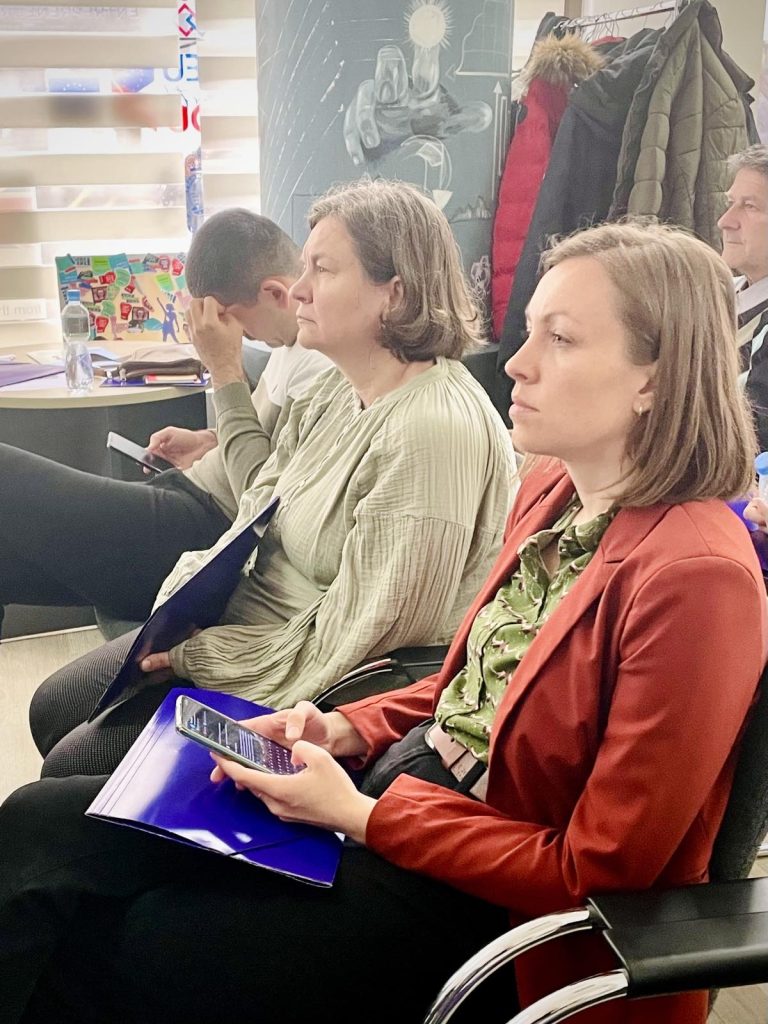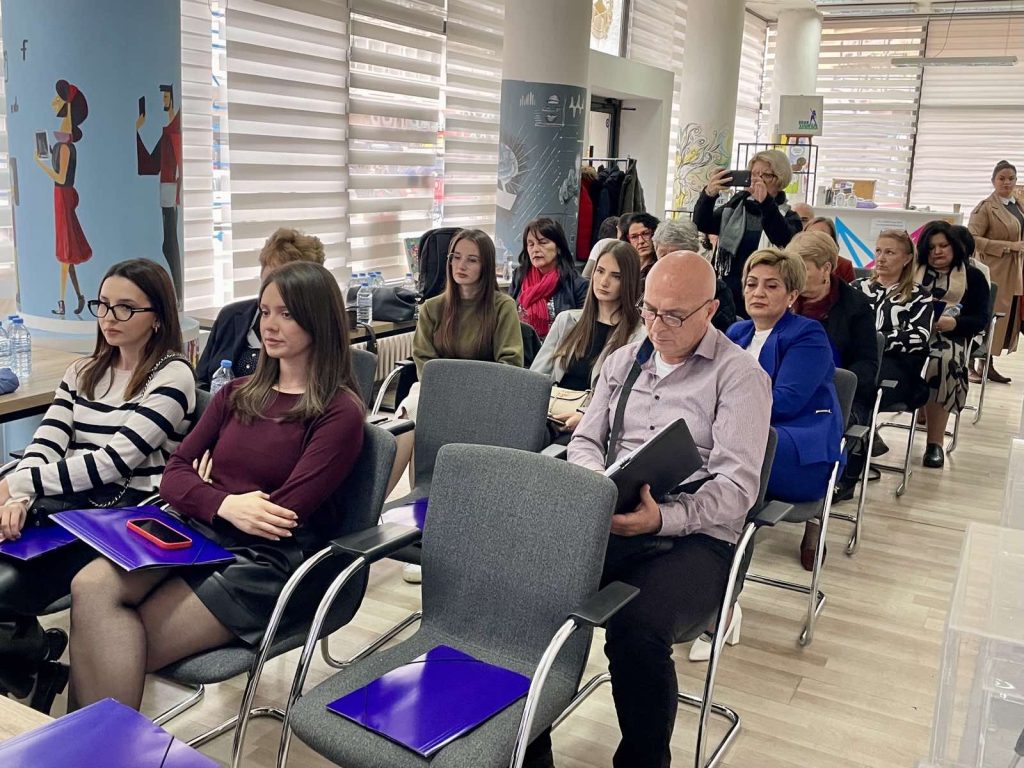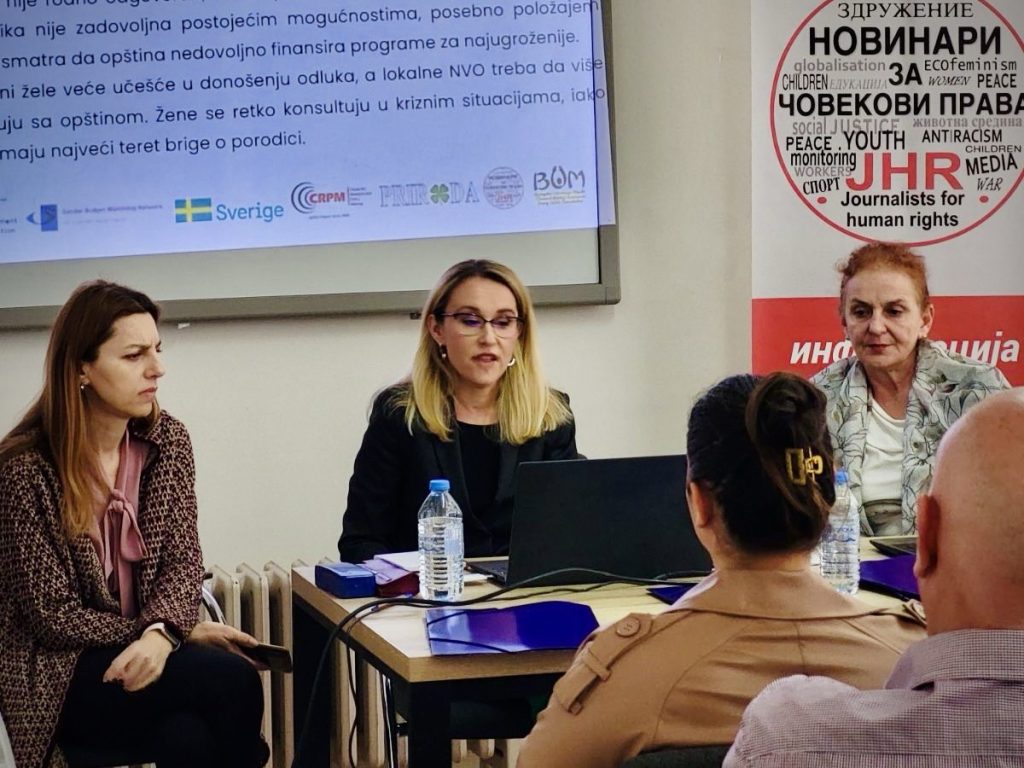The promotion of the analysis and the conclusions and recommendations at the final conference on April 15 in Skopje concluded the Regional Project “Strengthening the Accountability and Gender-Sensitive Responses of Local Authorities to Crises in 3 Countries”, implemented by 3 civil society organizations: Women’s Association Priroda-Bratunac, Bosnia and Herzegovina and Youth Association Bečej-Bečej, Serbia and Journalists for Human Rights, Skopje-North Macedonia. The project was implemented in 24 local communities/municipalities or 8 municipalities in each project country.
The overall goal of the project is to increase transparency and accountability for gender equality and gender-sensitive responses of local governments to crises and climate change in 3 Western Balkan countries.
In North Macedonia, the Association of Journalists for Human Rights, Skopje implemented the project in 8 small to medium-developed municipalities, one from each planning region: Vinica, Debar, Demir Kapija, Dojran, Jegunovce, Kratovo, Resen and Čučer-Sandevo in cooperation with several civil society organizations in these local communities. In these municipalities, the cooperating organizations conducted research on how the economic crisis affects equal opportunities and gender equality.
Based on the analysis of the research and the individual and general conclusions and recommendations reached, a platform for action has been created, with defined steps for campaigns in each country and in the region.
The general conclusion from the analysis in all three countries and 24 municipalities covered is that all municipalities included in the project face very similar problems: insufficient information among citizens and insufficient trust in the authorities, insufficient participation of citizens in decision-making processes, through public debates and transparency in budget spending, insufficient support for women and youth, insufficiently developed mechanisms for gender equality, lack of support for vulnerable groups, and in most municipalities insufficient social and economic opportunities, as well as programs for the empowerment and support of women from vulnerable groups and a general lack of gender awareness. The following problems relate to the lack of infrastructure, health infrastructure and social services, which further worsens the position of women and vulnerable groups, unemployment, increased poverty, inequality and economic inequality. In crisis situations, women and older people are particularly vulnerable. All of these problems negatively impact processes that contribute to government accountability and gender-sensitive local government responses to crises, as well as the process of gender-responsive budgeting.
Based on such conclusions, the recommendations that apply to all three countries are as follows:
- It is necessary to increase the participation of women and citizens in general in decision-making processes, to improve transparency and information about budget processes, and to provide financial resources to support the most vulnerable groups.
- It is necessary to work on improving infrastructure, health infrastructure and social services, as well as on creating gender-sensitive crisis management strategies.
- There is a need to improve awareness of budget processes and develop specific programs to support women, especially for the economic empowerment of women in rural areas.
- Systematic investment in education, transparency, and policy development that takes into account the specific needs of women and other vulnerable groups is needed.
- It is necessary to integrate a gender perspective into all aspects of municipal planning and budgeting.
- It is necessary to introduce gender-responsive criteria for budget allocation and to continue working on sensitizing the budget of each municipality. A comprehensive information and educational campaign is needed on the concept and meaning of gender-responsive budgeting.
- More transparent work of the municipal administration is needed (public hearings and other mechanisms for citizen participation)
- It is necessary to plan resources for a transparent and adequate response of local government to crises.
- It is necessary to work on partnerships between municipalities and the civil society organizations that work within them, in order to more efficiently and effectively resolve citizens’ problems.
- It is necessary to work on adopting or amending local policies in accordance with the needs of women and men in the local community.
- More work is needed to advocate for the interests of marginalized groups (youth, women, the elderly, people with disabilities, the unemployed, the socially vulnerable).
- It is necessary to implement campaigns for the establishment and (or) more efficient and transparent operation of institutions such as health facilities, social work centers, as well as employment bureaus.
The project is supported by funds from the Austrian Development Agency (ADA) and the Swedish International Development Agency (Sida) within the framework of the Gender Budget Watchdog Network II project. The Austrian Development Agency (ADA), an operating unit of the Austrian Development Cooperation, is the contracted partner supporting this project, and the Center for Research and Policy Making in Skopje is the main implementer of the project.
More details about each municipality individually, as well as the general conclusions and recommendations, can be found in the analysis, which is publicly available online at the following link:
The analysis is available online in English at the following link:

